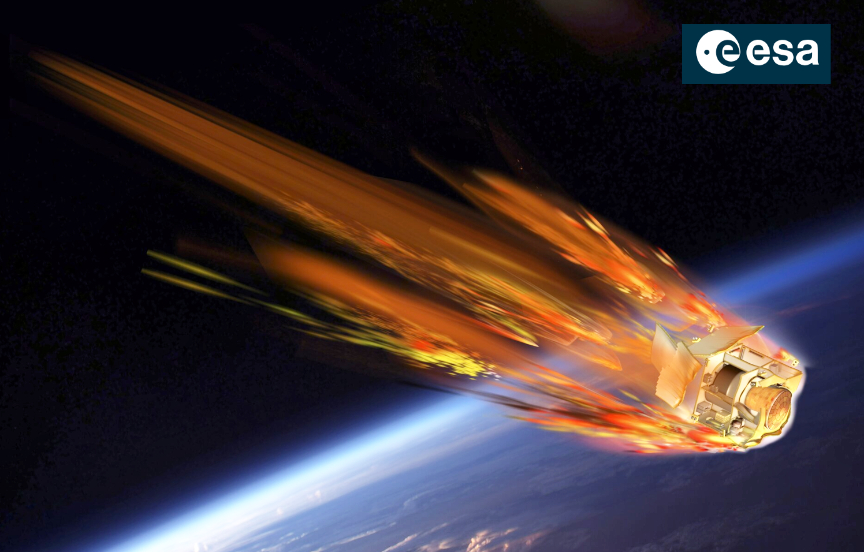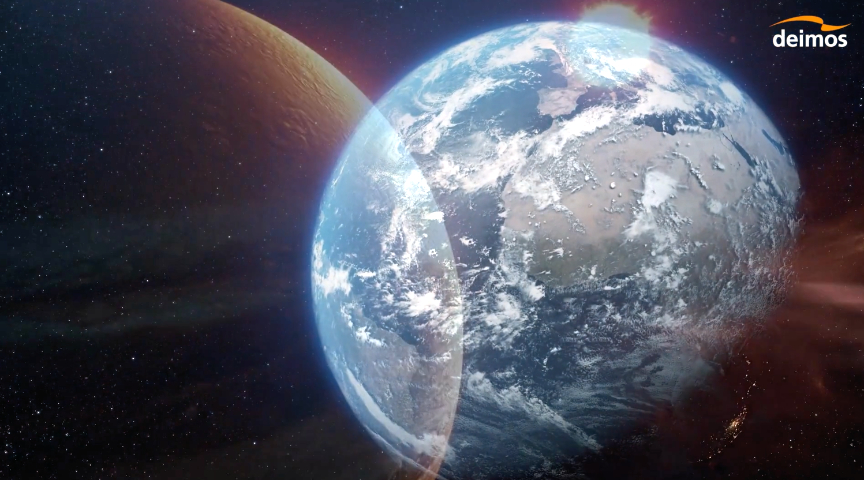
The European Space Agency (ESA) has awarded Deimos Space the contract for the organization’s DRACO (Destructive Re-entry Assessment Container Object) mission, ultimately worth 17 million euros.

The agreement for the first phase of the mission development is worth three million euros. Scheduled for launch in 2026, the mission, using a 150 kg satellite, is set to be the world’s first demo of a controlled break-up process in the Earth’s atmosphere.
For the development of this first phase, prime contractor Deimos will lead a consortium including Von Karman Institute in Belgium, Fluid Gravity Engineering, Belstead Research, Vorticity and Dial (all in the UK) and Hyperschall Technologie Göttingen from Germany.
The DRACO mission aims to eventually reduce the existing uncertainties in the breakup and demise processes, and to ultimately ensure that satellites completely burn up during re-entry. A complete burn up in the atmosphere assures the safety of people and the integrity of infrastructure and assets on the ground and in airspace.
DRACO’s primary objective is to record the sequence of events during a satellite’s destructive re-entry, with a surviving capsule transmitting detailed and unprecedented data to the ground.
The insights gained from this mission are expected to be instrumental in advancing early fragmentation and design-for-demise (D4D) technologies, which are pivotal to ESA’s Zero Debris approach and the future of sustainable space activities.
Deimos, as the system integrator and prime contractor of the mission, is responsible for mission design and management, systems engineering, platform development and integration, and the ground and user segments. The satellite, also designed by Deimos, will be assembled at Deimos’ facilities in Puertollano (Spain), with contributions from Deimos teams in Portugal, Italy and Romania.
Holger Krag, ESA Head of Space Safety, said, “The DRACO mission is part of ESA’s Zero Debris approach. We need to gain more insight into what happens when satellites burn up in the atmosphere as well as validate our re-entry models. The data collected by DRACO will help guide the development of new technologies to build more demisable space systems by 2030. We look forward to making the mission a reality together with Deimos as our prime contractor.”
Simone Centuori, CEO of Deimos, said, “Securing the initial phase of the DRACO contract is a major milestone for Deimos. It reinforces our position as a leader in small satellite development and a key contributor to Europe’s space sector. It also underscores our dedication to innovation and sustainability in space. This mission will provide unprecedented insights into satellite re-entry processes. It will also help paving the way for a safer and greener orbital environment. The consortium brings together top expertise from across Europe to ensure the success of this ambitious project. We are honored to lead this critical mission, and we look forward to working closely with our partners to achieve its objectives.”
